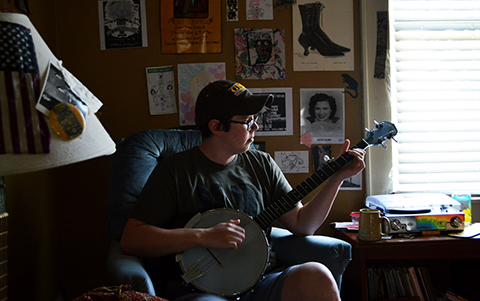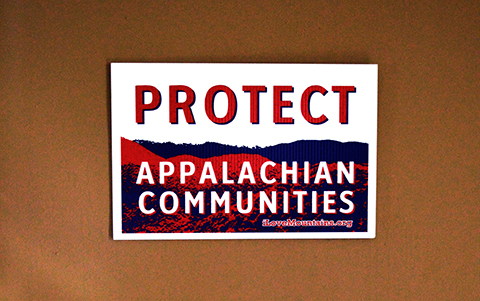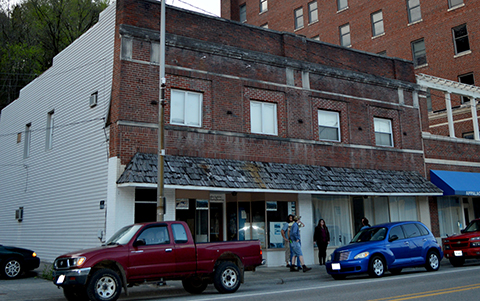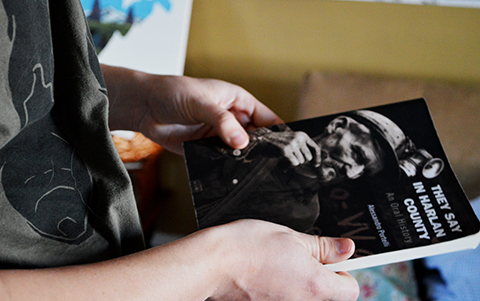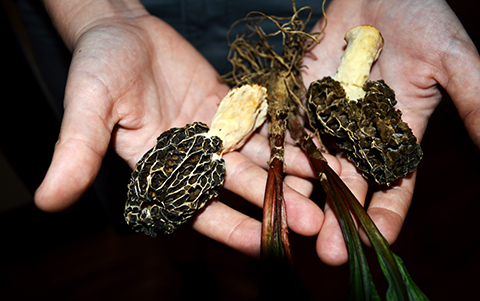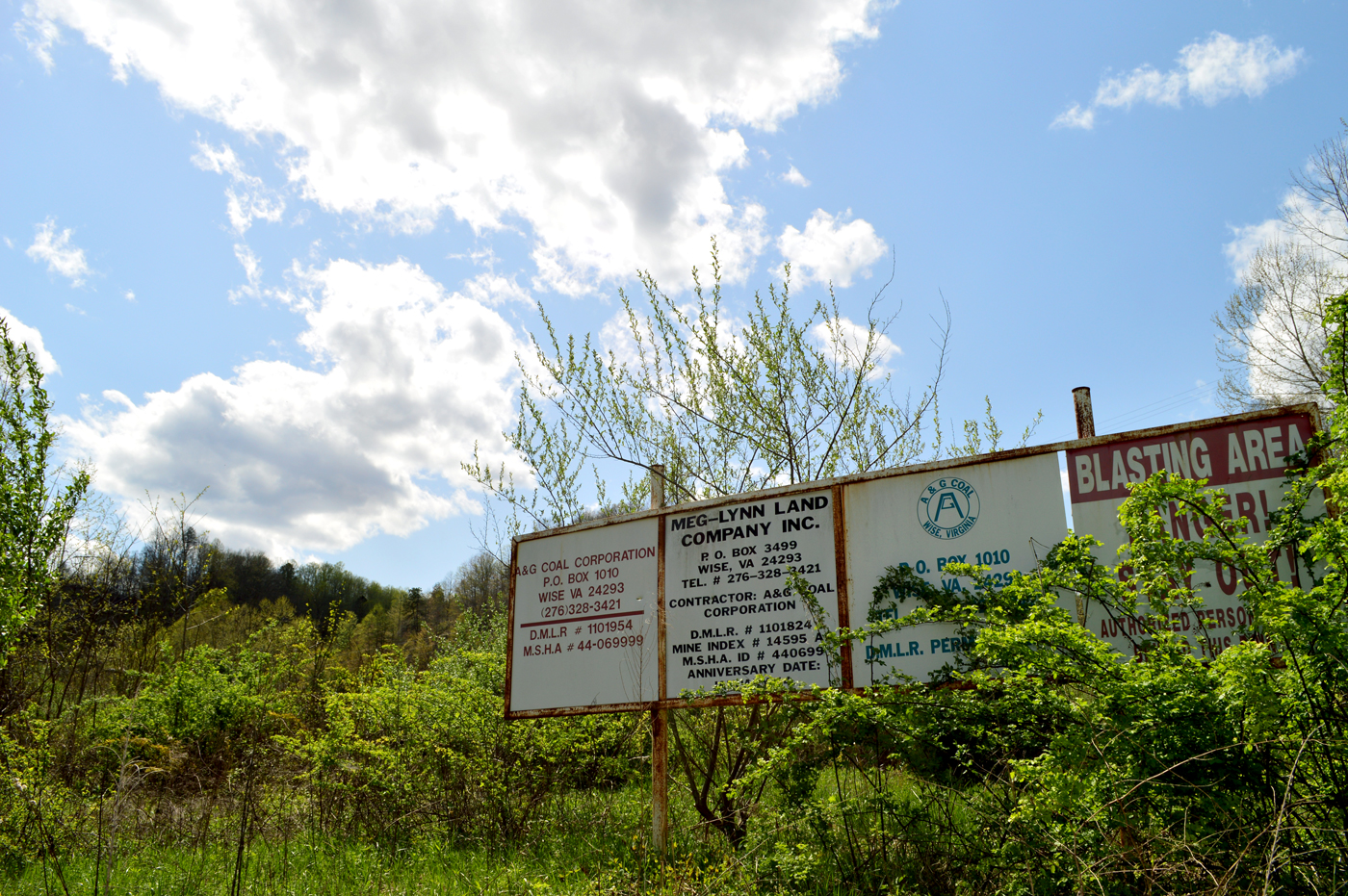Millennials Return
As a kid growing up in Appalachia, you’re given two choices: get out while you can, or stay. Kids who have the chance to leave are told to go elsewhere for college, get a good education, have a career and make something out of themselves, but they’re never told to return home. Home is painted as a picture of minimum-wage jobs, no opportunity to grow, and frankly, a road to poverty.
“It doesn’t cross our minds that there could be a place for us here,” said Kendall Bilbrey, 23, who grew up in Wytheville, Va., an agricultural town of about 8,200 people that is slowly becoming urbanized. “Upon actually leaving is when you realize what you’re missing out on in Appalachia.”
Bilbrey was a small percentage of the George Wythe High School class of 2010, a little over 100 students, to go to a four-year university.
“I was one of the lucky, privileged kids who had a lot of support and love from my parents that led me to be able to go to college,” said Bilbrey, who decided to major in integrated and conservation studies at George Mason University in Fairfax, Va.—a five- or six- hour drive from home.
“I was really excited as a queer kid growing up in southwest Virginia to try and find more people like me, so I wouldn’t feel so isolated,” Bilbrey said. “I wanted the freedom to be myself. It was something I was really excited about, and something that ended up being a disappointment to me when I actually got to D.C.”
Bilbrey said the queer community in D.C. didn’t “get it.”
“The people I met didn’t have the same sense of caring and support and neighborliness that people back home did,” Bilbrey said. “I never thought of that as an Appalachian thing.”
After a while, Bilbrey began struggling with the idea of staying in DC. Identifying as queer, Bilbrey kept thinking: "This is where I’m supposed to fit in, but I’m not.”
In three years, Bilbrey graduated from Mason and interned with the Smithsonian Institute in China researching panda bears and conservation. This internship set Bilbrey up to do further research, potentially, in graduate school.
“It was fun, but it made me realize even more that I wanted to go back to Appalachia,” Bilbrey said. “China was actually very similar to home in how the people were. It’s very localized, people look out for you, and there’s this sense of community that you don’t really see in the U.S. anymore—except in Appalachia.”
After China, Bilbrey didn’t go back to school to do further research in animal conservation. For a while, Bilbrey was in Roanoke, Va., working at a restaurant and call center. While Roanoke is in southwest Virginia, Bilbrey didn’t necessarily feel at home. Through a friend involved with the STAY Project, a network of young people who want a more inclusive, diverse and sustainable environment in Central Appalachia, Bilbrey became involved with the organization, got on the steering committee and moved to Big Stone Gap, Va.
This is where Bilbrey’s involvement in the Appalachian community took off.
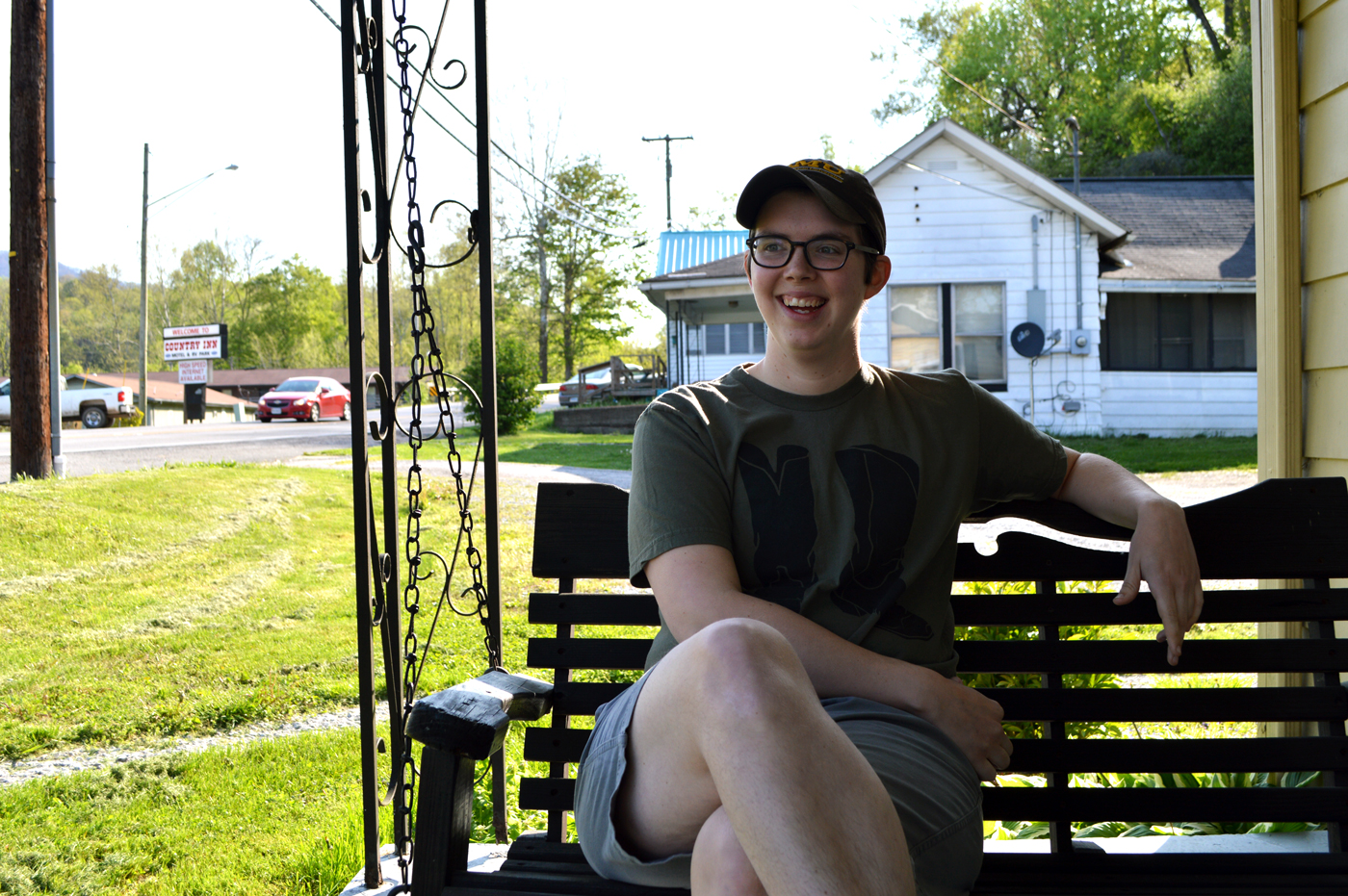 Kendall Bilbrey feels at home in Appalachia. "I don't think I've ever been as happy as I am now and here, doing the work I'm doing," Bilbrey said. "I feel like I'm doing something that's meaningful." Photograph by Ryan Weisser.
Kendall Bilbrey feels at home in Appalachia. "I don't think I've ever been as happy as I am now and here, doing the work I'm doing," Bilbrey said. "I feel like I'm doing something that's meaningful." Photograph by Ryan Weisser.
Bilbrey, who five years ago, couldn’t wait to leave southwest Virginia, is now involved in several organizations to help revitalize Appalachian communities.
Working as an Appalachian Transition fellow doing policy research in a social justice framework for the Highlander Research and Education Center, Bilbrey focuses on making the Appalachian region a sustainable place to live. Through work with Highlander, Bilbrey became involved in the Alliance for Appalachia, a group that wants to introduce new and diverse economic opportunities for Appalachia and put an end to mountaintop removal coal mining. With the Alliance, Bilbrey focuses on finding sustainable solutions for abandoned mines.
“All of this work comes together in one way or another,” Bilbrey said. “Each group focuses on specific parts of building a better economy for Appalachia, but we’re all working toward the same thing: Appalachia being sustainable.”
Listen to NPR's report on the 2004 stripmining death in Inman Hollow
Specifically in Big Stone Gap, there is a group of young and old community members are fighting for the safety and sustainability of Wise County, Va. A tragedy in the nearby neighborhood of Inman Hollow prompted the organization of this group called the Southern Appalachian Mountain Stewards, or SAMS. In 2004, a bulldozer pushed a boulder from a nearby strip-mining site. The 1,000-pound rock rolled into a 3-year-old boy’s room and killed him. Since that event, SAMS has stalled and halted multiple permits for strip mining in the Big Stone Gap and Appalachia, Va., area.
Through the Alliance for Appalachia, Bilbrey got involved with SAMS. “They have been a huge part of the community here that welcomed me,” Bilbrey said. “They get a lot of shit in this town—in a place that the coal industry has dominated for so long. It’s really scary and hard to stand up to that, and the folks at SAMS do it like they’re pros.”
Other Millennials are getting involved in SAMS as well. Most are from the Big Stone Gap area, or in surrounding counties, but some, like Adam Wells, lived away from Appalachia most of their lives.
Wells visited the region as a child, spending time with his grandparents on their land, which has been in the family for eight generations. Though Wells lived in southeast Virginia most of his childhood, he always felt at home when visiting his kin in Norton, Va., a few miles outside of Big Stone Gap.
“I just feel genetically wired to this place,” said Wells, who works with SAMS and Appalachian Voices, an environmental non-profit dedicated to conserving the central and southern mountains of Appalachia. “I’ve lived in a lot of places, and I never feel at home the way I do here.”
This feeling of attachment has to do with the strong family ties and the strong place ties people have, specifically in Appalachia.
Holly Barcus, a population geographer who studied migration patterns and the attachment people in Appalachia have to their homes, admitted that she is little surprised that young people are returning to Appalachia.
"What's really interesting, though, is that these young adults and students aren't returning solely because they have this strong attachment to Appalachia," Barcus said. "They're going back because they want to create societal and environmental change in their communities, and that is quite impressive."
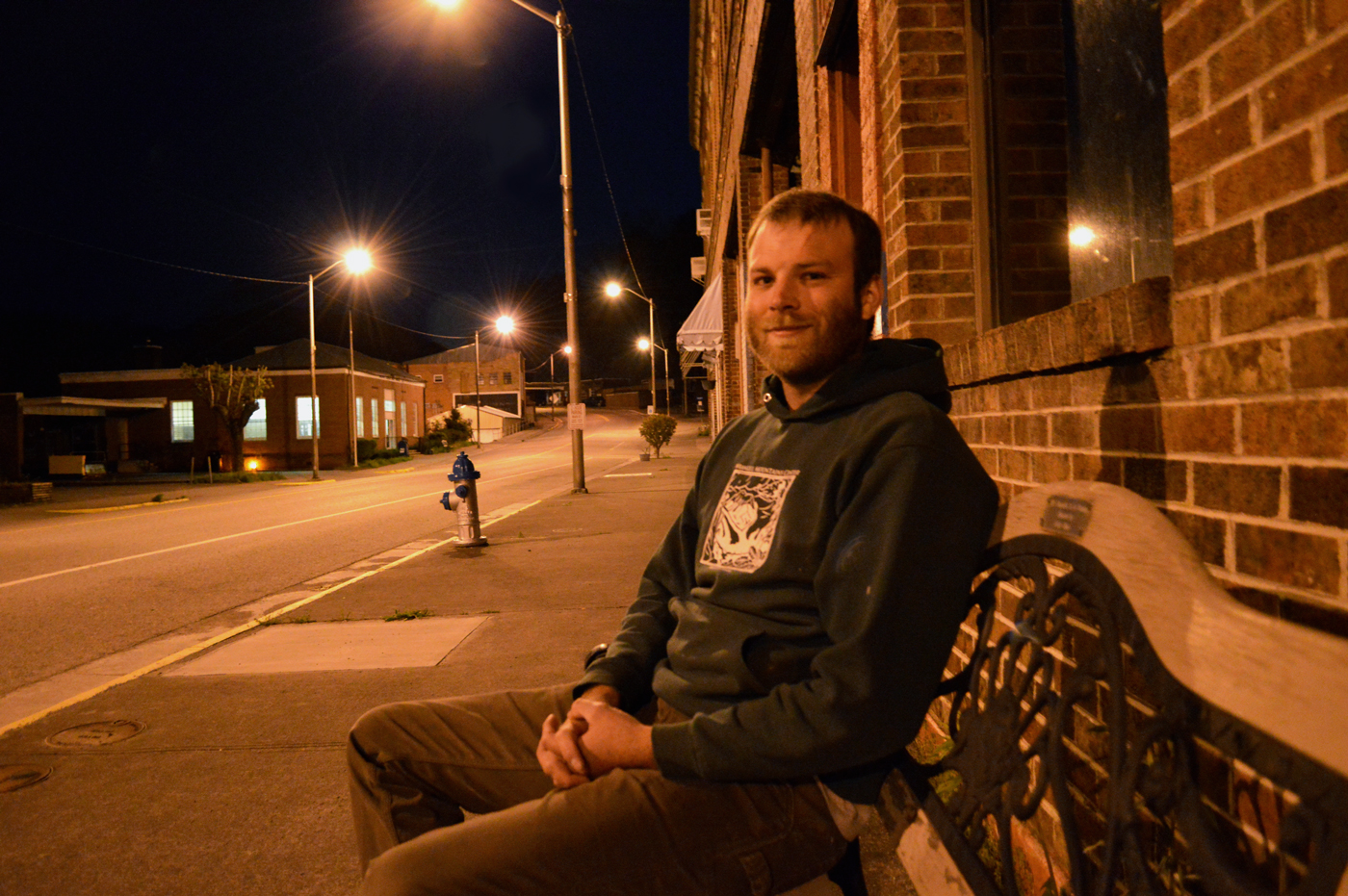 Though Adam Wells didn't grow up in southwest Virginia, he says he's always felt a connection to the area. Photograph by Ryan Weisser.
Though Adam Wells didn't grow up in southwest Virginia, he says he's always felt a connection to the area. Photograph by Ryan Weisser.
Wells’ interest in sustainability and doing away with harsh coalmining operations began in college at Appalachian State University in Boone, North Carolina.
“A friend invited me to a speech Judy Bonds was giving on campus about mountaintop removal,” Wells said. “so I went, not really knowing all too much about MTR.”
The late Judy Bonds, who died of lung cancer in 2011 and was referred to as “the enemy of mountaintop coal-mining” by the New York Times, was a well-known activist and considered a godmother of the movement to end MTR.
“After hearing Judy talk about MTR and what it was doing to Appalachian communities, places like my home,” said Wells, “I knew I wanted to get involved.”
While Wells was in school, he went on road trip to West Virginia and Kentucky.
“We were passing through all of these coal-mining towns and I was just shocked to see how mountaintop removal was affecting people,” Wells said. “It became personal.”
That road trip through Boone, West Virginia, and other coal-mining towns along the Appalachias, motivated Wells to get involved in the effort to end mountaintop removal. While still in college, he began volunteering with Appalachian Voices.
When Wells graduated Appalachian State, he went on another road trip—this time, out west with a college friend.
At the end of this trip, Appalachian Voices asked Wells to go down to Florida to speak about mountaintop removal and build local support for the Clean Water Protection Act.
“It was all being in the right place at the right time,” Wells said. “I always knew I’d come home, and this was my chance.”
When Wells left Florida, he decided to move back to Wise County, Va., and volunteer with SAMS. In 2010, Wells began working with the Sierra Club, a grassroots environmental organization.


